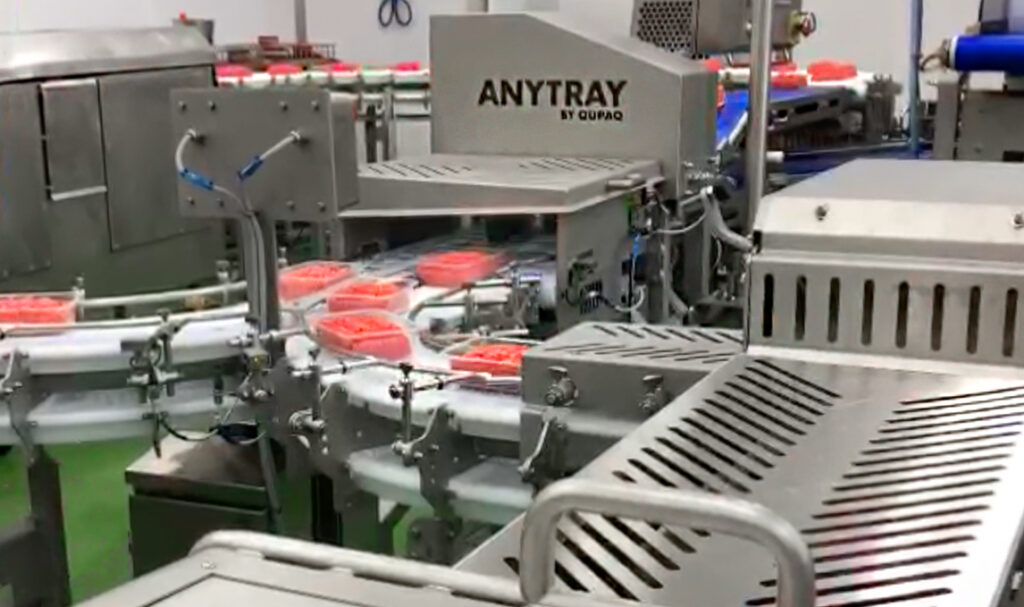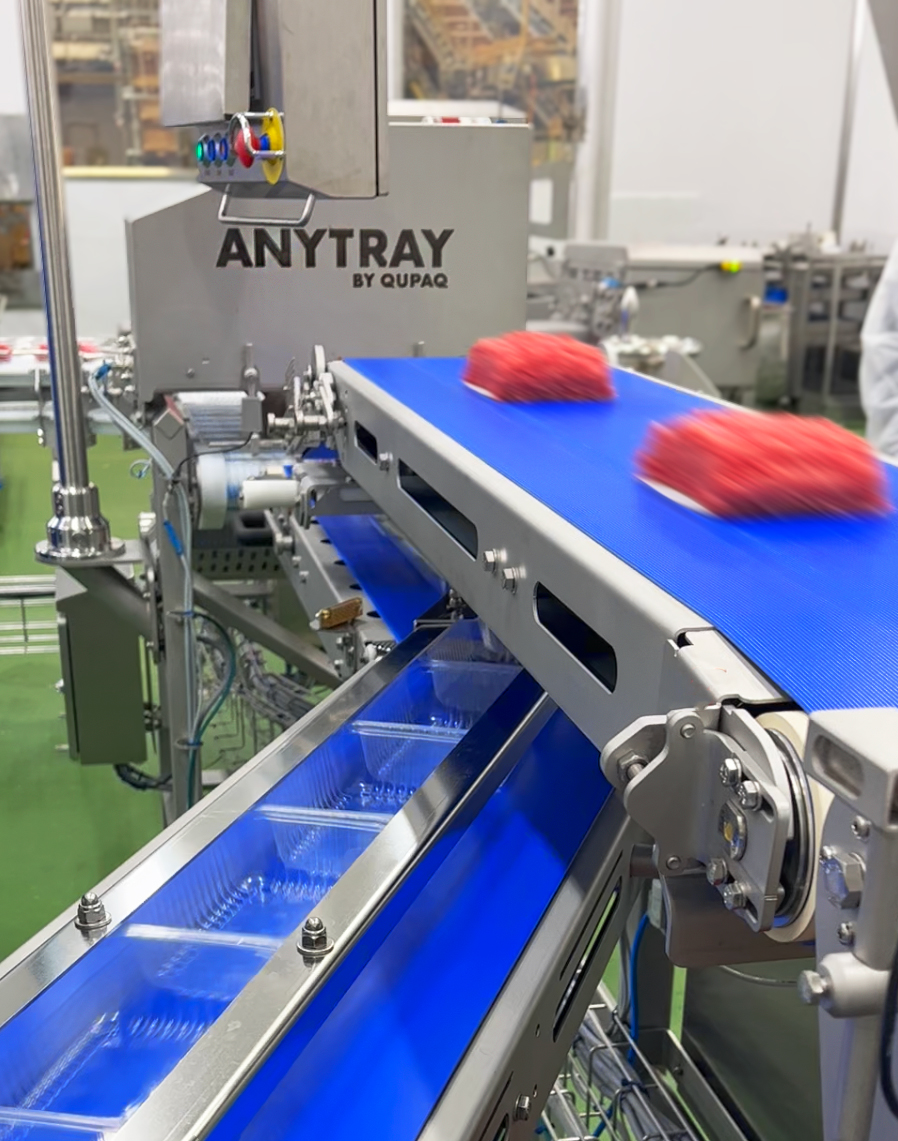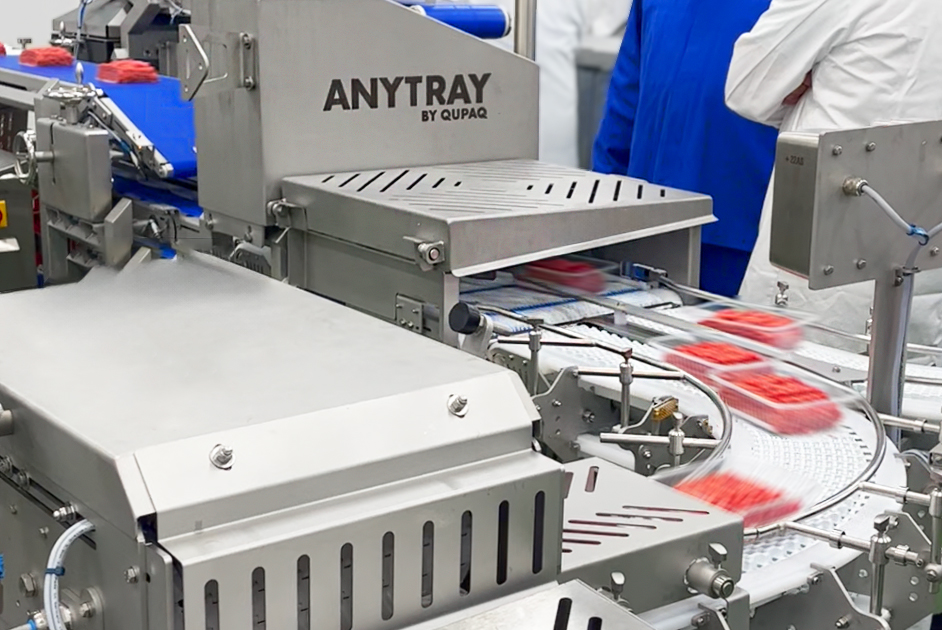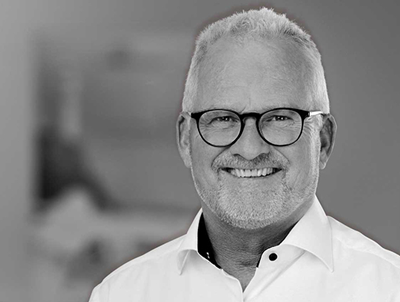Kaufland Increases Efficiency with QUPAQ’s Solutions
Kaufland increases capacity at Osterfeld meat-packing center with QUPAQ’s tray denesting and product loading technology. By implementing a QUPAQ tray denesting and product loading solution, Kaufland can now achieve an output with one packaging line that previously required two.
Increasing capacity
One Line Does the Work of Two
Automation has significantly improved Kaufland’s meat-packing center in Osterfeld, Germany. By implementing a QUPAQ tray denesting and product loading solution, Kaufland can now achieve an output with one packaging line that previously required two. This has translated into cost savings in staffing and ongoing maintenance.
In the wake of the successful integration of a QUPAQ solution at its meat-packing center in Möckmühl in 2017, the German hypermarket chain Kaufland initiated a similar investment for its Osterfeld facility earlier this year.
The project was completed in August, and the primary objective is to bolster efficiency and curtail maintenance costs through automation. In fact, Kaufland can now achieve what used to require two minced meat portioning lines with just one, significantly boosting their operational capacity.
“By implementing the right automation solutions, we can reduce costs and meet a growing challenge in the food industry of limited access to qualified labor. We reached out to QUPAQ as we ran into issues with limited space at our meat-packing center in Osterfeld and wanted to enhance our production efficiency. The system we implemented in Möckmühl did exactly that, and therefore, we chose to invest in a similar solution for our Osterfeld facility”, explains Christopher Mader, Head of Operational Services at Kaufland.
Kaufland Overview
Kaufland is a leading German hypermarket chain, founded in 1984 as part of the Schwarz Gruppe, which also owns Lidl. With over 1,500 stores in Germany and several Eastern European countries, Kaufland is recognized for its extensive selection of meat products and other groceries.


Enhancing Efficiency and Lowering Costs
The QUPAQ solution, though rooted in standard modules, is tailored to Kaufland’s specifications. The system features the ANYTRAY Cleanline Tool, supplemented by the ANYTRAY Cleanline Buffer and servo control mechanism, alongside the QUPAQ Fast Loader – Compact that fills the trays with both speed and accuracy. Integral to the system’s efficiency is the QUPAQ Easy Diverger, routing trays to their designated side of the split band while an overpusher aligns them for sealing. This synergy between components creates a fluid, high-performance operation with one line feeding two sealers for maximum capacity.
“Prior to installing the new QUPAQ solution, our setup consisted of two distinct tray denesting and loading systems connected to our meat processing unit. This posed challenges regarding efficiency, coordination, and higher maintenance costs. With QUPAQ, we have transitioned to a single cohesive solution that feeds both sealers with approximately 60 portions per minute. The installation has notably enhanced our operations by making it more efficient and cost-effective. The mechanical integration of the packaging line was straightforward and well planned, while feedback from our production team says that operation is simple”, explains Christopher Mader.
Consolidating the tray denesting and portion loading has simplified production, leading to significant time savings. This efficiency is evident in the day-to-day operations, with fewer interruptions, a boost in productivity, and expedited turnover times. One of the standout advantages has been the consistent uptime, ensuring that Kaufland’s meat packaging operations run smoothly without unnecessary delays.
Supporting Transitions to Automation
Food manufacturers worldwide must navigate complex challenges with rising costs and a call for reduced ever-evolving compliance regulations. Therefore, the need for streamlined operations has never been more vital. To construct the most efficient solutions, QUPAQ uses standard solutions that are accustomed to the client’s needs. For Kaufland, finding the most suitable components to accommodate the capacity demands was important.
“While we offer standard modules, it is vital to establish a streamlined process beforehand to create the best solutions. We pride ourselves on our ability to make adaptable solutions, ensuring they align with our client’s requirements. In Germany, the food industry is working with high capacities, making efficiency a critical factor. We are proud to aid in one of the biggest hypermarket chains in Germany’s transition towards more efficient automation”, says Lars Zederkof, CSO at QUPAQ.
The collaboration between Kaufland and QUPAQ underscores the critical role of tailored automation in enhancing operational efficiency. It sets a precedent in the sector, highlighting how innovative technologies can pragmatically address the challenges of the food industry.


